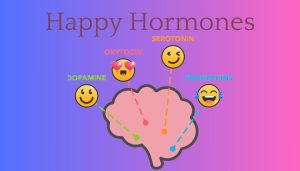Blood groups are crucial in determining health, disease susceptibility, compatibility in blood transfusions, and even nutritional needs. Blood types offer insights into a person’s overall health, classified based on the presence or absence of specific antigens on red blood cells (RBCs). This article explores the different blood groups, their unique characteristics, and how scientific research links blood types to health risks, disease susceptibility, and diet.
Table of Contents
ToggleOverview of Blood Groups
The two key blood group systems are the ABO system and the Rh factor.
- ABO System: This system divides blood into four main types: A, B, AB, and O.
- Rh Factor: This is based on the presence (+) or absence (-) of the RhD antigen, resulting in either Rh-positive or Rh-negative blood.
Together, these factors create eight primary blood types: A+, A-, B+, B-, AB+, AB-, O+, and O-.
-
Blood Group A
Antigens on RBCs: A
Antibodies in Plasma: Anti-B
Compatible With: A, O
Characteristics of Blood Group A
- Health Considerations: Scientific studies suggest that people with blood group A may have a higher risk of certain diseases, such as cardiovascular issues and gastric cancer. Blood type A individuals also seem more vulnerable to severe cases of COVID-19.
- Immune Response: The presence of anti-B antibodies in the plasma makes individuals with blood group A more resistant to bacterial infections caused by B-type bacteria.
- Personality Traits (Cultural Beliefs): In some cultures, such as in Japan, blood group A individuals are thought to be organized, responsible, and meticulous.
Scientific Insights
- Disease Risks: People with blood type A are at higher risk of cardiovascular diseases due to increased levels of cholesterol and clotting factors like fibrinogen. They also may face a slightly higher risk of certain cancers, particularly stomach cancer, due to the link between their blood type and Helicobacter pylori infection.
- Dietary Recommendations: Based on the Blood Type Diet Theory, blood group A individuals are believed to thrive on a plant-based diet, rich in fruits, vegetables, and whole grains, while avoiding red meat and dairy products due to lower stomach acid levels. However, this diet remains controversial and lacks solid scientific backing.
-
Blood Group B
Antigens on RBCs: B
Antibodies in Plasma: Anti-A
Compatible With: B, O
Characteristics of Blood Group B
- Health Considerations: People with blood group B tend to have a lower risk of heart disease compared to those with blood types A and AB. However, they might be at higher risk for developing pancreatic cancer.
- Adaptability: Blood type B individuals are often considered more adaptable to changes in diet and environment due to a more balanced immune response compared to other blood types.
- Personality Traits (Cultural Beliefs): People with blood group B are often seen as creative, free-spirited, and independent.
Scientific Insights
- Disease Risks: Blood group B is associated with a reduced risk of blood clotting disorders, but people with this blood type may be more susceptible to autoimmune conditions and certain infections, like E. coli-related illnesses.
- Dietary Recommendations: Blood group B individuals are thought to benefit from a balanced diet of both plant-based foods and animal proteins. Dairy is often considered beneficial for this group, as type B individuals produce enzymes that break down dairy more efficiently than other blood types.
-
Blood Group AB
Antigens on RBCs: A and B
Antibodies in Plasma: None
Compatible With: AB, A, B, O (Universal Recipient)
Characteristics of Blood Group AB
- Health Considerations: Blood type AB is the rarest and is linked to an increased risk of heart disease and cognitive impairment as individuals age. They are also more prone to developing blood clots.
- Universal Plasma Donor: AB-negative individuals are universal plasma donors, which means their plasma can be transfused to anyone regardless of the recipient’s blood type.
- Personality Traits (Cultural Beliefs): AB blood type individuals are often seen as rational, empathetic, and balanced, combining the traits of both type A and B personalities.
Scientific Insights
- Disease Risks: Scientific studies show that AB blood type individuals may be at a higher risk for memory and cognitive disorders, such as dementia. The combination of A and B antigens also makes them more prone to conditions involving both cardiovascular diseases and clotting disorders.
- Dietary Recommendations: Due to the mix of both A and B antigens, blood group AB individuals may benefit from a mixed diet, incorporating elements of both plant-based foods and lean animal proteins. They are advised to avoid excessive consumption of processed meats and dairy.
-
Blood Group O
Antigens on RBCs: None
Antibodies in Plasma: Anti-A, Anti-B
Compatible With: O (Universal Donor for Red Blood Cells)
Characteristics of Blood Group O
- Health Considerations: People with blood group O have been found to have a lower risk of developing cardiovascular diseases and blood clotting disorders. However, they may be more prone to peptic ulcers due to higher levels of stomach acid.
- Universal Donor: O-negative individuals are known as universal donors because their blood can be transfused to anyone, making their blood highly valuable in emergency situations.
- Personality Traits (Cultural Beliefs): Individuals with blood type O are often considered to be natural leaders, confident, and extroverted. They are thought to handle stress and challenges well.
Scientific Insights
- Disease Risks: Blood group O individuals have a lower risk of developing heart disease and stroke compared to non-O blood types. They are also less susceptible to severe malaria and may have a protective advantage against certain viral infections like COVID-19.
- Dietary Recommendations: According to the Blood Type Diet Theory, people with blood group O may benefit from a high-protein diet, including lean meats, fish, and vegetables, while avoiding grains and dairy, which could interfere with their metabolic processes.
The Rh Factor: Rh-Positive vs. Rh-Negative
- Rh-Positive (Rh+): About 85% of the population is Rh-positive, meaning they have the RhD antigen in their red blood cells. Rh-positive individuals can receive blood from both Rh+ and Rh-donors.
- Rh-Negative (Rh-): Rh-negative individuals lack the RhD antigen, meaning they can only receive blood from Rh-negative donors. This becomes critical in cases like pregnancy, where an Rh-negative mother carrying an Rh-positive fetus may develop antibodies against the fetus’s blood, potentially leading to complications.
Scientific Insights on the Rh Factor
- Pregnancy Complications: Rh incompatibility between a mother and her fetus can cause hemolytic disease in newborns, which is treated with Rh immunoglobulin injections. This prevents the mother’s immune system from attacking the fetus’s red blood cells.
- Health Risks: There is no strong evidence linking the Rh factor to specific diseases or health conditions beyond its role in pregnancy and blood transfusion compatibility.
The Role of Blood Groups in Disease Risk and Health
Recent scientific research has highlighted how different blood types can influence overall health and susceptibility to various diseases:
- Cardiovascular Disease
Studies show that individuals with non-O blood types (A, B, AB) are more likely to develop heart disease, possibly due to higher levels of clotting factors like fibrinogen. Blood type O individuals, on the other hand, are less prone to clotting and cardiovascular issues.
- Infectious Diseases
Blood type O individuals have a reduced risk of severe malaria and some viral infections, including COVID-19. In contrast, blood type A individuals may have an increased susceptibility to certain infections, including COVID-19 and influenza.
- Cancer Risks
Blood group A has been linked to a higher risk of stomach cancer due to a higher prevalence of Helicobacter pylori infections, a bacterium known to cause peptic ulcers and stomach cancer. Blood groups B and AB have been associated with an elevated risk of pancreatic cancer.
- Digestive Health
People with blood group O tend to produce more stomach acid, making them more prone to peptic ulcers but better equipped to digest animal proteins.
Conclusion
Blood groups are not just critical for transfusions or medical emergencies but also offer valuable insights into disease risks, immune response, and overall health. While blood type-specific diets and personality traits remain areas of debate and cultural significance, scientific research has established clear links between blood groups and certain health conditions. Understanding your blood group and its unique traits can help you make informed decisions about your health, diet, and lifestyle.
Whether you’re A, B, AB, or O, staying informed about the characteristics of your blood type can empower you to take better care of your health and contribute to lifesaving efforts through blood donations.







